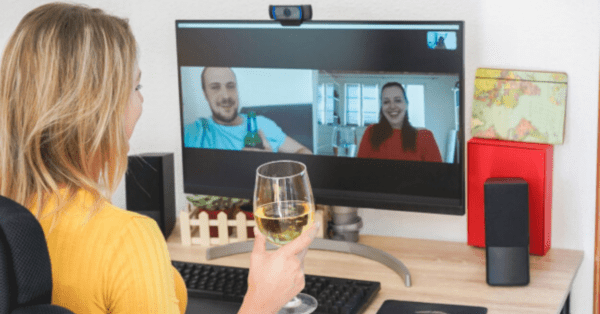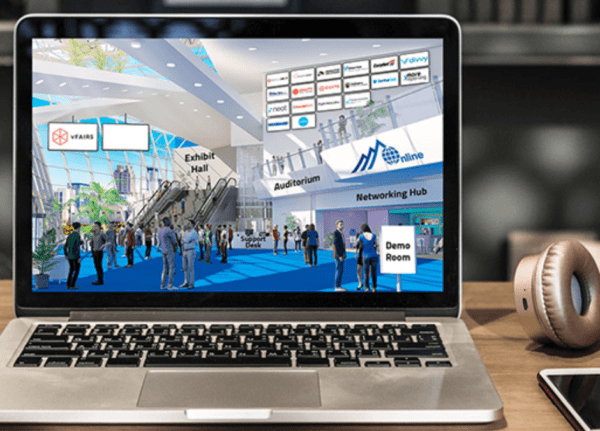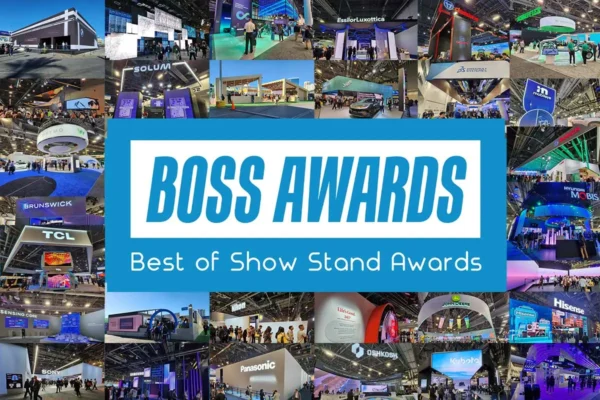Three Questions to Ask When Creating an RFP for your Virtual Event Tech: “Why?”, “Who?” and “How?”
by Candy Adams, “The Booth Mom®” DES | VEMM | CTSM | CME | CEM | CMP | CMM
Just as goal setting is your first step when building a new exhibit or planning any event, writing your virtual event technology platform RFP needs to be thought through with three strategic one-word questions: “Why?”, “Who?” and “How?” Starting with this high-level planning will determine the purpose for holding this event, who you want to attend and how to implement a strategic plan for achieving your goals.
Let’s consider how these three questions can impact your event’s end results. Then we can get down to the nuts and bolts of the most critical questions to ask potential technology partners.
The Most Important Question is “Why Hold the Event?”
 Event Goals, Objectives: What’s the purpose of your virtual event? Is it to create awareness of your company or products? Generate qualified sales leads? Promote social interactions? Educate your staff?
Event Goals, Objectives: What’s the purpose of your virtual event? Is it to create awareness of your company or products? Generate qualified sales leads? Promote social interactions? Educate your staff?
Event Type: What type of event will best meet your goals and objectives? An educational event? A networking gathering? An industry get-together? A quarterly company meeting? A tradeshow or expo? Streamed social media content? A concert or performance?
Success Measurement: What outcome(s) are you expecting from the event? What content, solutions or message(s) do you want your virtual attendees to take away? What actions do you want attendees to take after attending your virtual event? How, exactly, will you measure the success of the event? And how will the data gathered help you improve your future events?
Do you know “Who”?
The next question has two parts: 1) Who has a stake in your event’s success, and 2) Who is your target audience?
Stakeholder Teams: Don’t plan your virtual event in a vacuum! Pulling together your stakeholder taskforce is critical. Soliciting their input early in the planning process is key to creating your event’s framework, which, in turn will determine what event elements are “must-haves” vs. “wouldn’t-it-be-nice.”
Your internal planning team can include anyone—from your CEO/CMO/CFO, board of directors, and marketing and sales team members to whomever is financially responsible for the event. Externally, in addition to your technology partner/suppliers and their staffs, you may have sponsors or exhibitors, speakers or panelists and moderators or hosts. Depending on the size and expertise of your internal planning team, you may need to contract additional staff for roles in pre-event planning, procurement, content, social media and speaker management, plus those with day-of-event responsibilities.
 Attendee Types: What does your target audience look like? By researching attendees’ personal characteristics and building personas, you can hone your engagement strategies to resonate with them. These personas may include attributes like their job title and responsibilities, geographic location, age, gender, personality type, background, goals, motivations, frustrations, buying influence and level of technological savvy.
Attendee Types: What does your target audience look like? By researching attendees’ personal characteristics and building personas, you can hone your engagement strategies to resonate with them. These personas may include attributes like their job title and responsibilities, geographic location, age, gender, personality type, background, goals, motivations, frustrations, buying influence and level of technological savvy.
“How” to Pull together the Pieces
The “how” of a virtual event encompasses implementing your event’s strategy, including:
Timeline: How long until you plan to hold your virtual event? What’s your anticipated timeline to work with all your stakeholders to build your event framework, create a plan of action, identify and contract with a technology provider, build your internal team, determine content and providers, contract with your speakers, implement your plan and market your program?
Event Schedule: With the influx of virtual events after COVID-19 shut down live events, there has been a boom in both existing and new technology platform companies that support virtual events. But considering the number of live events continuing to pivot to virtual and the most popular days/times that virtual events are offered in various time zones, you may need to be flexible when selecting your preferred event date(s).
Maximum Number of Users/Sessions: Technology platforms may have limits on the number of users and sessions. Having an estimate of how many attendees you anticipate attending the various types of sessions planned (i.e., keynotes, individual speakers, panels, breakouts and networking) can be critical in determining if your event’s size is compatible with specific platforms.
Budget and Monetization: Monetization of a virtual event can come in more forms than just hard dollars. What internal funds have been allocated —or reallocated from live events—for your virtual event? Will you charge attendees registration fees? What sponsorship dollars do you anticipate? How much revenue will you receive from virtual exhibitors and brand partners? Is there financial value in packaging the event data you’ve gathered on your attendees? Does your technology platform help to track these revenue streams?
Now’s your opportunity to determine what your virtual event could look like if there were no restrictions or limitations as you start with a clean virtual slate!
What features do you want—and need—from your technology partner?
The primary goal of your technology platform (today’s version of a live-event venue) is to create a seamless, unified experience for your virtual event attendees that exceeds both their needs and your objectives. Providing this service takes more than just technological expertise. Too many people confuse a technology platform with a full-service event production company who will work before, during and after your event, employing the most appropriate technology to provide full-service professional support. The production of virtual events is often compared to that of being a TV show producer/director, marrying interesting content with quality production, rather than being like the duties of a live event manager.
After doing research to determine technology providers whose platforms offer the basic services you need, your next step is to provide an RFP that’s a high-level overview of your planned virtual event. Don’t miss the opportunity to solicit their advice on how to best reach your goals.
Common features to consider when composing a virtual event technology platform’s RFP can include:
- Event Management: Can the technology platform manage all segments of the virtual event—attendees, speakers, content, schedules and budgets—in real time?
- Dedicated Staffing: Who will your primary contact be and what will their role be for the duration of planning your virtual event? Who is on your production team’s core staff, and who will manage your event during rehearsals and the day of the event to guarantee glitch-free results? Can your platform provide additional staff to fill gaps in your internal staffing?
- User Experience: Is the platform interface user-friendly so that all virtual event participants and staff can easily access information to facilitate signup, content, marketing promotion and technical support?
- Registration: How will registration, ticketing, confirmation and day-of-event access be handled for your attendees and speakers? Will your virtual attendees be able to register, select sessions for their personal agenda, complete interest surveys and pay for their registration seamlessly without being confused by multiple logins on different platforms? How will data be shared with exhibitors and sponsors after attendees engage with them?
- Analytics Reporting: What data—both attendee and financial—will be captured pre-, during and post-event? In what format will you receive data and when will it be available? What information will be available in real-time during your event?
- Marketing Promotion: How does the technology platform integrate with your other marketing software for sending invitations, social media and email campaigns, posting ancillary content and sending reminders? Can the platform be customized with design elements that brand your event? Does the platform’s integrated registration module integrate with your company’s CRM (Customer Relationship Management) system for transfer of data?
- Sponsorship Opportunities: What visibility will you be able to provide to your sponsors throughout your event? How will your attendees engage with them—i.e., short videos between sessions, in break-out sessions or in a virtual exhibit hall? What valuable data can be captured to share with your sponsors and exhibitors?
- Recording and Archiving: How much of your content will be pre-recorded for playback the day of the virtual event? Will you be recording and archiving the live sessions for editing to be offered on-demand in the future? How much are additional editing and storage costs?
- Technology Compatibility: Is the platform’s technology and equipment compatible with that of both your team and your audience (especially if you’ll be dealing with international attendees)?
- Data Security and Compliance: If you are currently using a Customer Relationship Management (CRM) system, how will your registration system of Personally Identifiable Information (PII) integrate with information captured during the event (i.e., sessions attended, responses to in-session polls, compiling of chat responses, etc.)? Is your technology provider compliant with both international (i.e., the General Data Privacy Regulations, a.k.a. GDPR in Europe, and in China who has major technology limitations) and with the California Consumer Privacy Act (CCPA)? If you’re in the medical community, your platform may also need to adhere to HIPAA (Health Insurance Portability and Accountability Act) compliance regulations.
Don’t skip the reference check! You’ll also want to ask those companies who make your RFP short list what similar events they have managed or are currently working on, what roles they played in the virtual event management and request references of those virtual event managers. Ask to review archived or attend current virtual events they’re managing to see how smoothly they ran.
 Candy Adams, known throughout the exhibit industry as “The Booth Mom®”, is a hands-on exhibit project manager who’s just earned her seventh industry certification, and, as of CES 2021, hit a milestone of 500 shows under her belt. As an accomplished veteran exhibit marketing consultant and exhibit staff “boothmanship” and exhibit management trainer, she specializes in sharing her knowledge and expertise to guide exhibitors through both the live and virtual tradeshow mazes, assuring they maximize their return on investment while cutting exhibiting costs. A prolific award-winning writer and trainer on exhibiting best practices, she’s published more than 400 articles and blogs and trained tens of thousands of exhibit managers on all aspects of tradeshow exhibit management in her 29-year career. For more info, visit http://www.BoothMom.com
Candy Adams, known throughout the exhibit industry as “The Booth Mom®”, is a hands-on exhibit project manager who’s just earned her seventh industry certification, and, as of CES 2021, hit a milestone of 500 shows under her belt. As an accomplished veteran exhibit marketing consultant and exhibit staff “boothmanship” and exhibit management trainer, she specializes in sharing her knowledge and expertise to guide exhibitors through both the live and virtual tradeshow mazes, assuring they maximize their return on investment while cutting exhibiting costs. A prolific award-winning writer and trainer on exhibiting best practices, she’s published more than 400 articles and blogs and trained tens of thousands of exhibit managers on all aspects of tradeshow exhibit management in her 29-year career. For more info, visit http://www.BoothMom.com
This story originally appeared in the Jan./Feb. 2021 issue of Exhibit City News, p. 26. For original layout, visit https://issuu.com/exhibitcitynews/docs/ecn_jan-feb_2021































